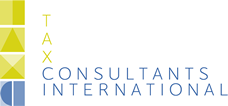Global Mobility Services International labor and cross border assignments Tax compliance
Income from employment fron non-residents
To the extent a non-resident taxpayer works in the Netherlands, or is deemed to work in the Netherlands, or receives income from a previous employment exercised in the Netherlands (i.e. a pension), he/she is in essence subject to Dutch income tax.
If a non-resident taxpayer physically works abroad, but is a member of the supervisory board or the board of directors of a Dutch corporation, the individual is deemed to exercise his/her employment in the Netherlands. The same rule in essence applies to employees of Dutch governmental bodies and individuals assigned abroad on the basis of an international treaty to which the Netherlands is a party.
If a non-resident taxpayer works for a Dutch employer but partly works outside the Netherlands, he/she is deemed to have exercised his/her entire employment in the Netherlands, unless and to the extent:
- the income is actually subject to tax in another state, Aruba, Curaçao, St. Maarten, or the Dutch overseas territories Bonaire, St. Eustatius and Saba, taken into account the provisions of applicable tax treaties and the Dutch Tax Regulation for the Kingdom of the Netherlands and the Tax Regulation for the Netherlands (applicable in the relationship between the Netherlands and Aruba, Curaçao, St. Maarten, and its overseas territories of Bonaire, St. Eustatius and Saba); or
- the employment is almost entirely exercised outside the Netherlands and the income is subjected to tax in a foreign state, unless the right to tax the income is allocated to the Netherlands on the basis of applicable tax treaties or similar international arrangements.
Special rules apply to pension rights and annuities.
Certain allowances for a member or a previous member of European Parliament and his/her spouse and children, are treated as income from an employment exercised in the Netherlands.
The foregoing summarizes provisions of Dutch domestic law which can be overruled by applicable tax treaties.
Every tax treaty is different but most Dutch tax treaties do not allow the Netherlands (as source state) to tax a resident taxpayer of the other treaty state unless:
- the individual actually works in the Netherlands for more than 183 days during a calendar year/tax year/12 month period (depends on the applicable tax treaty); and/or
- the individual works for a qualifying Dutch employer who bears the individual salary costs; and/or
- the income of the individual is borne by a Dutch permanent establishment.
Please note that the definition of the term 'employer' used in tax treaties can be either a formal employer or an 'economic employer'. Under conditions, the “economic employer principle” is applicable, these conditions are published in a separate Dutch Tax Decree.
Most tax treaties provide specific rules for special categories of taxpayers, such as members of a board of directors or supervisory board, artists and sportsmen, students and scholars, and people working in the offshore business, shipping or international transport.


.png)



